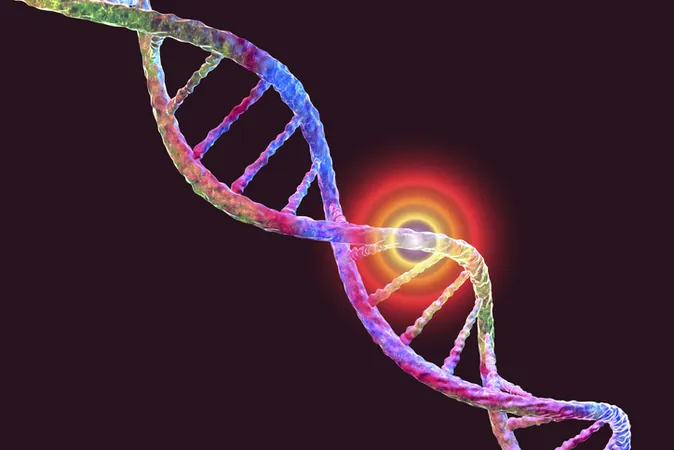
Combining Advanced CRISPR Techniques Could Revolutionize Cancer Research
2024-11-12
Author: Li
Title: How Combining Advanced CRISPR Techniques Could Revolutionize Cancer Research
In a groundbreaking study, researchers from ETH Zurich in Basel have made strides in understanding the genetic underpinnings of cancer by employing innovative CRISPR-Cas technology. Their research, recently published in *Nature Biotechnology*, reveals how various mutations within a cell's genome can impact its functionality and contribute to cancer development.
Led by ETH professor Randall Platt, PhD, the study introduces a novel approach that allows scientists to create thousands of cells with distinct genetic variations in controlled laboratory settings. By examining these variants, researchers aim to pinpoint which specific alterations lead to cancer.
The study emphasizes the importance of "mutational scanning," a process that links genetic variants to phenotypic outcomes, thereby enabling insights into protein functions and potential pathogenicity of variants. However, existing techniques often fall short in creating diverse sets of genetic variants quickly and efficiently. To tackle this challenge, the research team has ingeniously combined cytosine and adenine base editing with prime editing methods to explore the pathogenicity of numerous variants in the epithelial growth factor receptor gene (EGFR), a critical gene associated with various cancers, including lung, brain, and breast cancer.
By amalgamating two advanced CRISPR-Cas techniques, the researchers modified the EGFR gene in over 50,000 distinct ways across multiple human cell lines. The result was a wide array of cell variants that they meticulously assessed for their roles in tumor formation and drug resistance—key factors in cancer progression.
The team first pinpointed crucial cancer-relevant regions within the EGFR gene. These regions are particularly important because mutations here can either transform a healthy cell into a cancerous one or modify cancer cells’ responses to treatment. Recognizing the limitations of base editing alone, the researchers complemented their approach with prime editing to ensure a comprehensive exploration of potential variants.
After comprehensive analysis, the researchers identified ten EGFR gene variants whose implications for cancer progression were previously unclear. Their findings indicate that some of these mutations may facilitate the onset of cancer, while others could contribute to resistance against certain medications. Intriguingly, the study also uncovered a potentially novel mechanism by which mutations in the EGFR gene may drive cancer and identified six gene variants that had not been documented before.
In their conclusion, the researchers proudly declare the establishment of an innovative mutational scanning framework utilizing both base editing and prime editing to probe genetic elements with high precision. This cutting-edge methodology not only enhances our understanding of EGFR activation and drug resistance but could also pave the way for individualized clinical decision-making in future cancer treatment approaches. The implications of this research are vast—the multimodal mutational scanning could be expanded to explore genetic variants across a range of diseases, potentially unearthing crucial insights necessary for developing tailored therapies and improving patient outcomes.
This research exemplifies the exciting intersection of genetics and cancer treatment, signaling a potential shift in how we approach the complexities of cancer at the molecular level. Stay tuned as this remarkable journey of discovery unfolds, paving the way for life-saving advancements in cancer care!
 Brasil (PT)
Brasil (PT)
 Canada (EN)
Canada (EN)
 Chile (ES)
Chile (ES)
 España (ES)
España (ES)
 France (FR)
France (FR)
 Hong Kong (EN)
Hong Kong (EN)
 Italia (IT)
Italia (IT)
 日本 (JA)
日本 (JA)
 Magyarország (HU)
Magyarország (HU)
 Norge (NO)
Norge (NO)
 Polska (PL)
Polska (PL)
 Schweiz (DE)
Schweiz (DE)
 Singapore (EN)
Singapore (EN)
 Sverige (SV)
Sverige (SV)
 Suomi (FI)
Suomi (FI)
 Türkiye (TR)
Türkiye (TR)